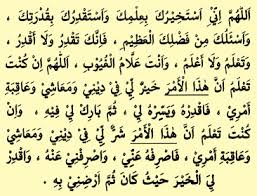
Music playing in the background. Six hundred eager people conversing and anticipating the arrival of the bride.
Enter the bride.
A dazzling young beauty, laden with only the finest and softest materials enters the hall. Glittery ornaments sparkling in her hair and diamond earrings hanging low, result in some favourable murmurs and nods of approval amongst the women and leaves others baffled at how she managed to grow double her hair length overnight. She smiles, walks down the aisle, and approaches her husband who carefully hands her an exquisite bouquet of the choicest flowers and takes her seat next to him on centre stage. She holds her head and shoulders as a proper bride should—high and elegant. Some start making their way to the front for family photos, handing over gifts, and congratulating the newlyweds. The slideshow on the wall project family photos over the years and the live DJs engage the audience with some heartwarming tunes to get the mood rolling. 
Amidst the clattering of forks and knives enjoying the five-course meal, eyes focus on the young lady who has taken the mike on stage. The bride’s sister says thanks the guests for attending, despite the big derby game, City vs. United, drawing some laughs in the audience, especially amongst the brothers. She says a few words to embarrass the bride, wishes her well on her life ahead and jokingly threatens the groom to make sure he takes care of her (not-so) little sister. She proceeds by adding,
“We pray Allah makes her a wife like Fatimah (R) and him a husband like Ali (R). May they live the lives of the Sahabahs before us and follow in the footsteps of Nabi ﷺ …”
I tuned out, too busy looking around me. Everyone clapped and happily resumed their meals.
Exeunt. Curtains fall.

Was I the only one who found her speech a little pretentious? Ameen to the beautiful Du’aas and Allah is the sole judge of our hearts, but to make a mockery of the Sunnah like that? I was offended. Couples want to court before marriage; they want to choose a best man for their wedding; brothers want the best cars to take their new bride home; sisters demand a mind-blowing Mahr and want a henna ceremony dancing to Bollywood tunes, an over-night hen party (the list goes on and on and on) and then they expect a marriage like the queen of the women of Jannah? We have functions of rife as a public challenge to Allah, inviting his wrath and then expect His Mercy and blessings in it as if we have a right to it? The audacity! My beloved Nabi’s ﷺ life and his families’ lives aren’t there to flower our events and to tick the box for the more “religious” in the crowd; or to balance all the wrongs in the event by adding a few Islamic lines; or to appease our guilt in carrying out such an event. The life of Nabi ﷺ and the lives of the Sahabah (R) and Sahabiyaat (R) are there as examples for you and I to emulate in EVERY aspect of our lives including marriage. A marriage is a sacred union between two people, and it is our duty to keep it sacred. My beloved Nabi ﷺ said,
اعظم النكاح ايسرها مؤنة
“The most blessed Nikah is the one with the least expenditure.” [1]
When my Nabi ﷺ asked his soon to be son-in-law Ali (R) what he had as Mahr to present to his daughter Fatimah (R), he replied that he only owned a sword, an armour, and a horse. [2] He sold his armour for four hundred and eighty dirhams which was then presented as a very simple dowry to Fatimah (R). For the wedding feast, Sa’d bin Ubadah (R) offered a sheep and some Ansar offered some corn. [3] The simplicity and ease of their weddings was what put so much Barakah and happiness in their marriages. Nabi ﷺ instructed,
“Hold a wedding feast, even if only with a sheep.” [4]
Nabi ﷺ himself, gave simple wedding feasts to mark his marriages. Safiyya Bint Shaibah (R) narrates, “The Prophet ﷺ gave a banquet of two Mudds (3.5 kg) of barley on marrying some of his wives.” [5]
To consummate his ﷺ’s marriage with Safiyyah Bint Huyay (R), Anas (R) narrates, “The Prophet ﷺ ordered for the leather dining sheets to be spread, and then dates, dried yoghurt and butter were provided over it, and that was the Walimah of the Prophet.” [6] If we tried to emulate these Sunnahs of our beloved Nabi ﷺ in our weddings, then we’d see them naturally turn into beautiful marriages In sha Allah!
[1] Bayhaqi in his Shu’ab al-Iman & Mishkat al-Masabih
[2] Kifayat at-Taalib, Bihar al-Anwaar
[3] Kanzul Umaal
[4] Sahih Bukhari
[5] Sahih Bukhari
[6] Sahih Bukhari
Zainab Bint Husain
 (Pick and choose the right questions, obviously you are not going to ask all the questions)
(Pick and choose the right questions, obviously you are not going to ask all the questions)
